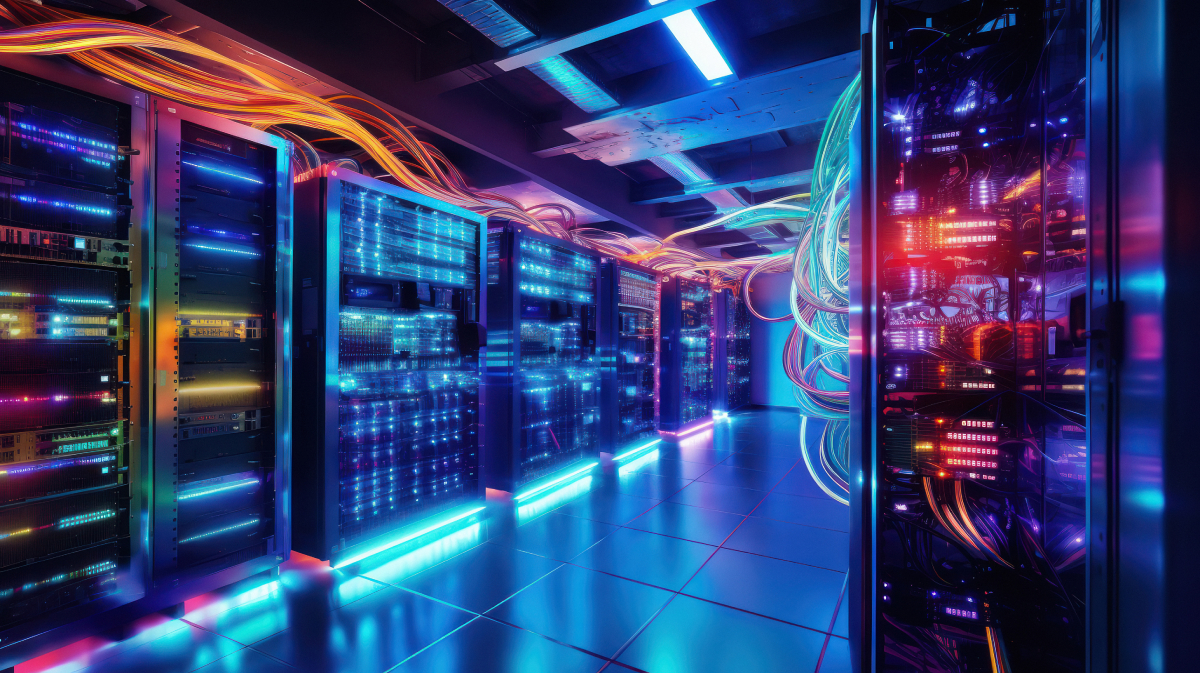Finding sustainable solutions for HPC is driving innovation in the industry, resulting in both environmental and economic benefits, says Maria Mohr, EMEA Sustainability Lead, Presales Practices at Dell Technologies UK.
High performance computing (HPC) has become a catalyst for change for engineers, data scientists, and IT specialists across various industries worldwide. In the UK specifically, the government recently announced that the UK would join the European HPC Joint Undertaking, an EU programme to pool access to powerful supercomputers, after fears that the UK would fall behind in the race for processing power.
HPC provides the computational power required to process and analyse large datasets, while artificial intelligence (AI) algorithms offer the intelligence to extract meaningful insights from the data. The integration of HPC and AI is vital to the future of computing as it enables organisations to tackle complex problems, make data-driven decisions, and develop advanced AI applications.
However, the adoption of HPC can be hindered by its considerable energy consumption, which presents a barrier for many businesses. In the face of intensifying climate concerns and rising energy costs, the technology providers who make up the HPC industry are shifting their focus to include energy efficiency along with price and performance to align with their customers’ sustainability commitments.
A report we launched in 2023 revealed that 58% of HPC data centres surveyed recognised the impact of energy costs on business operations, indicating that optimising energy consumption without compromising performance is important for businesses as well as the environment.
Optimising energy consumption without compromising performance is essential for businesses as well as the environment. However, it doesn’t have to be an either/or approach. The HPC industry is rising to this challenge, optimising software to deliver better energy efficiency and ensuring that HPC contributes to the circular economy.
Unlocking HPC efficiency with energy-saving solutions
One of the biggest challenges around energy use is maintaining a cool environment for the servers powering HPC, prompting the industry to look for more effective solutions. The path to improved efficiency is not a universal solution nor a one-size-fits-all approach. It means businesses need to collaborate with technology providers equipped with built-in analytics to spotlight energy usage trends. This collaboration can facilitate a custom energy-efficiency strategy tailored to their specific needs.
Identifying an effective cooling solution is crucial. Investigations are being done into cutting-edge cooling methods to mitigate the heat produced by these devices. Liquid cooling is emerging as a popular choice due to its superior heat dissipation capabilities compared to conventional air-cooling systems. According to a report by Allied Market Research, the global liquid cooling market was valued at $2.75 billion in 2020 and is expected to reach $12.99 billion by 2030, a 17.1% increase.
Software advancements are also playing a pivotal role in HPC sustainability. Smart workload management and optimisation algorithms are employed to distribute computing tasks efficiently, which reduces power usage and prolongs hardware longevity.
The consolidation and optimisation of infrastructure is fundamental to fast-tracking sustainability efforts, a trend frequently observed among customers.
The European Environment Agency acknowledges the importance of sustainability in HPC in achieving the European Union’s carbon neutrality target by 2050. By harnessing solar, wind and hydroelectric power, the HPC industry can balance its energy requirements.
Transforming e-waste into a catalyst for the circular economy
HPC systems are typically long-lasting, but system enhancements and upgrades can result in potential electronic waste (e-waste).
It is imperative to manage this e-waste responsibly, securely, and safely. Each year, 53.6 million tons of electronics become e-waste. That translates to 16 pounds per person annually, making it the fastest-growing domestic waste stream. Only 17.4% of this is recycled. Proper e-waste management is vital for reducing the industry’s carbon footprint.
Recycling and refurbishing initiatives are on the rise, with companies investigating methods to recycle and repurpose otherwise outdated hardware and extract valuable materials. For example, at Dell Technologies, we offer recovery and recycling services, which aim to reduce e-waste by supplying a useful stream of materials that can be recycled or repurposed for new products. Since 2007, we have recovered over 2.5 billion pounds of used electronics.
Join the sustainable HPC movement with AI
Sustainable strategies for HPC should not only focus on hardware and infrastructure but also encompass the algorithms that fuel them. Machine learning (ML) and AI algorithms often demand significant computational resources, prompting researchers to investigate techniques like model compression. This method reduces the computational needs of AI models without sacrificing their precision.
The rise of initiatives advocating AI’s use for broader environmental sustainability is also noteworthy. Customers are using AI-powered applications to tackle urgent environmental issues, ranging from optimising energy grids to monitoring and managing natural resources.
A combination of global environmental concerns, escalating energy costs, regulatory mandates and technological advancements is redefining the HPC industry and its priorities. The pursuit of sustainability and energy efficiency in HPC is not just revolutionising the industry; it is establishing a more robust future for computing across the UK. This transformation will drive innovation across the region for many years to come.


